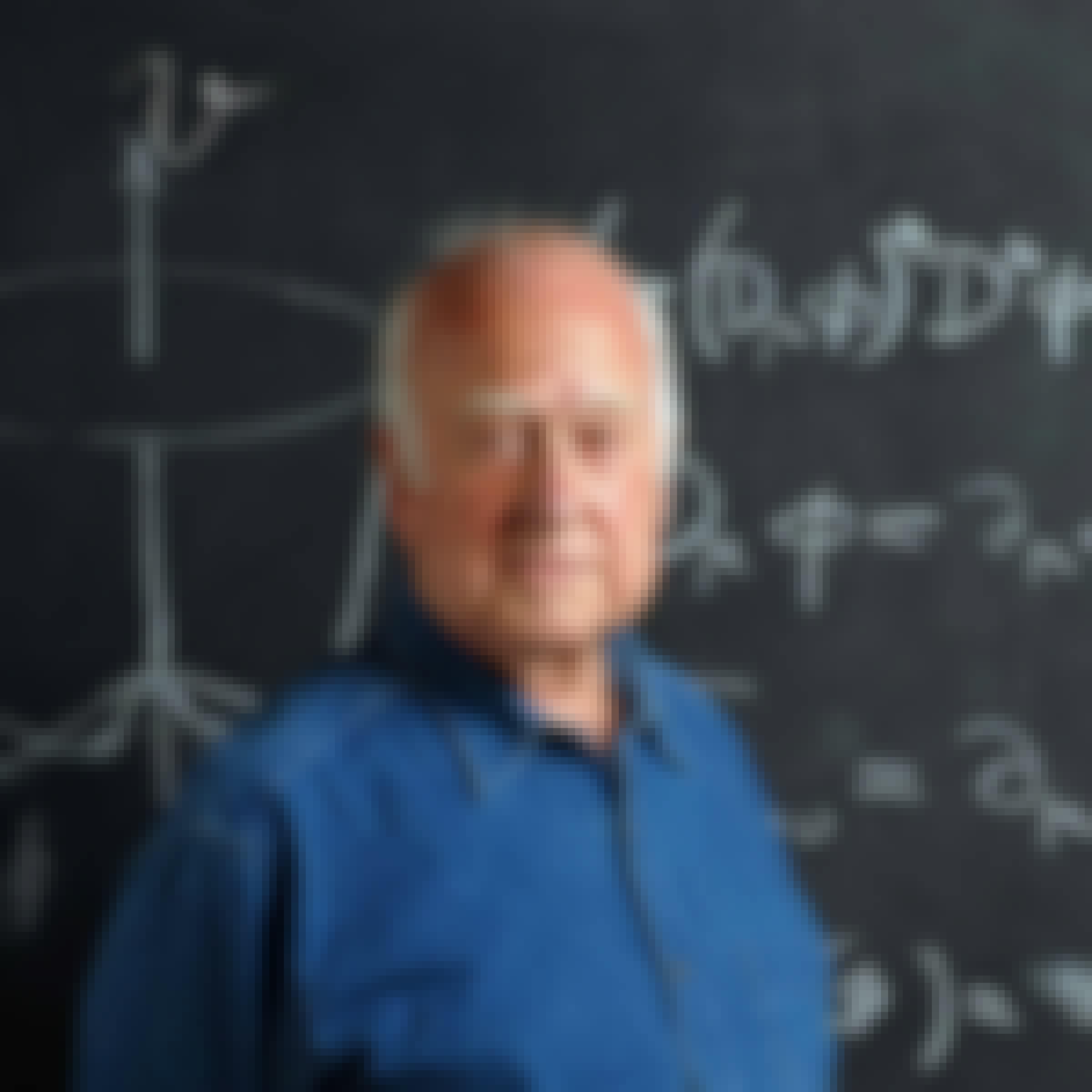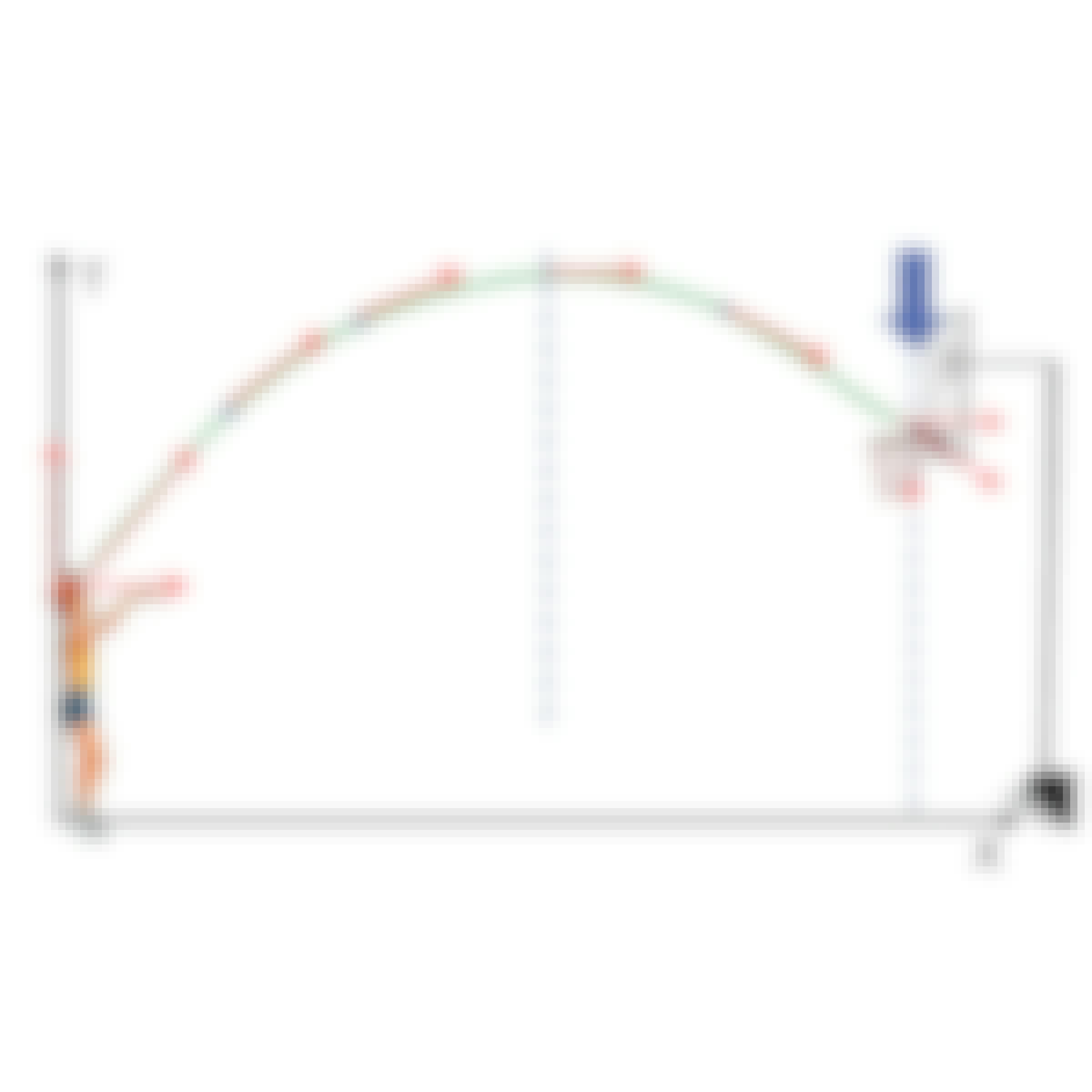- Browse
- Relativity
Relativity Courses
Relativity courses can help you learn the principles of time dilation, the curvature of spacetime, and gravitational waves. You can build skills in mathematical modeling, critical thinking, and problem-solving as you explore the implications of Einstein's theories. Many courses introduce tools such as simulation software and data analysis techniques, which are used to visualize complex concepts and analyze experimental results in astrophysics and cosmology.
Popular Relativity Courses and Certifications
 Status: PreviewPreviewS
Status: PreviewPreviewSStanford University
Skills you'll gain: Physics, Timelines, Verification And Validation, Scientific Methods, Research, Experimentation, Mathematical Modeling, Systems Of Measurement
4.9·Rating, 4.9 out of 5 stars3.2K reviewsBeginner · Course · 1 - 3 Months
 Status: NewNewStatus: PreviewPreviewT
Status: NewNewStatus: PreviewPreviewTThe Hong Kong University of Science and Technology
Skills you'll gain: Physics, Differential Equations, Linear Algebra, Calculus, electromagnetics, Mathematical Modeling, Advanced Mathematics, Mechanics, Applied Mathematics
Mixed · Course · 1 - 4 Weeks
 Status: PreviewPreviewT
Status: PreviewPreviewTThe Hong Kong University of Science and Technology
Skills you'll gain: Physics, Thermal Management, Calculus, Mechanics, Advanced Mathematics, Mathematical Modeling
4.6·Rating, 4.6 out of 5 stars172 reviewsBeginner · Course · 1 - 3 Months
 Status: FreeFreeU
Status: FreeFreeUUniversity of Alberta
Skills you'll gain: Physics, Storytelling, Scientific Methods, Science and Research, General Science and Research, Simulations, Systems Of Measurement, Scientific Visualization
4.8·Rating, 4.8 out of 5 stars1.2K reviewsBeginner · Course · 1 - 3 Months
 Status: NewNewStatus: PreviewPreviewT
Status: NewNewStatus: PreviewPreviewTThe Hong Kong University of Science and Technology
Skills you'll gain: Physics, Advanced Mathematics, Calculus, Differential Equations, Mechanics, Mathematical Modeling, Scientific Methods
Mixed · Course · 1 - 3 Months
 Status: PreviewPreviewC
Status: PreviewPreviewCCaltech
Skills you'll gain: Physical Science, Physics, General Science and Research, Systems Of Measurement, Mathematical Modeling
4.6·Rating, 4.6 out of 5 stars840 reviewsMixed · Course · 1 - 3 Months
What brings you to Coursera today?
 Status: PreviewPreviewT
Status: PreviewPreviewTThe University of Edinburgh
Skills you'll gain: Physics, Laboratory Research, Mechanics, Experimentation, Mathematical Modeling, electromagnetics, General Science and Research, Applied Mathematics
4.8·Rating, 4.8 out of 5 stars26 reviewsIntermediate · Course · 1 - 3 Months
 Status: PreviewPreviewP
Status: PreviewPreviewPPolitecnico di Milano
Skills you'll gain: Mechanics, Physics, Hydraulics, Thermal Management, Engineering Analysis, Physical Science, Experimentation, Engineering Calculations, Systems Of Measurement, Calculus
4.6·Rating, 4.6 out of 5 stars27 reviewsBeginner · Course · 1 - 3 Months
 Status: NewNewStatus: PreviewPreviewU
Status: NewNewStatus: PreviewPreviewUUniversitat Autònoma de Barcelona
Skills you'll gain: Physics, Laboratory Research, General Science and Research, Physical Science, Engineering, Scientific, and Technical Instruments, electromagnetics, Experimentation
Beginner · Course · 1 - 3 Months
 Status: NewNewStatus: PreviewPreviewU
Status: NewNewStatus: PreviewPreviewUUniversitat Politècnica de València
Skills you'll gain: Mechanics, Physics, Systems Of Measurement, Torque (Physics), Differential Equations, Calculus, Engineering Calculations, Engineering Analysis, Trigonometry, Applied Mathematics, Derivatives
Intermediate · Course · 1 - 3 Months
 Status: NewNewStatus: PreviewPreviewU
Status: NewNewStatus: PreviewPreviewUUniversitat Politècnica de València
Skills you'll gain: electromagnetics, Mechanics, Integral Calculus
Beginner · Course · 1 - 4 Weeks
 Status: Free TrialFree TrialR
Status: Free TrialFree TrialRRice University
Skills you'll gain: Mechanics, Torque (Physics), Physics, Problem Solving, Mechanical Engineering, Engineering Calculations, Calculus, Engineering Analysis, Graphing, Physical Science, Mathematical Modeling, Algebra, Applied Mathematics, Geometry, Trigonometry
4.7·Rating, 4.7 out of 5 stars298 reviewsIntermediate · Specialization · 1 - 3 Months
What brings you to Coursera today?
In summary, here are 10 of our most popular relativity courses
- Understanding Einstein: The Special Theory of Relativity: Stanford University
- General Relativity I: Theoretical Foundations: The Hong Kong University of Science and Technology
- Understanding Modern Physics I: Relativity and Cosmology: The Hong Kong University of Science and Technology
- Astro 101: Black Holes: University of Alberta
- General Relativity II: Applications: The Hong Kong University of Science and Technology
- The Evolving Universe: Caltech
- The Discovery of the Higgs Boson: The University of Edinburgh
- Introduzione alla fisica sperimentale: meccanica, termodinamica: Politecnico di Milano
- Introduction to Neutrino Physics: Universitat Autònoma de Barcelona
- Physics Fundamentals: Mechanics: Universitat Politècnica de València
Frequently Asked Questions about Relativity
Relativity is a fundamental theory in physics developed by Albert Einstein, encompassing two main components: special relativity and general relativity. Special relativity, introduced in 1905, revolutionized our understanding of space and time, asserting that the laws of physics are the same for all observers, regardless of their relative motion. General relativity, published in 1915, expanded this concept to include gravity, describing it as the curvature of spacetime caused by mass. Understanding relativity is crucial as it underpins much of modern physics, influencing fields such as cosmology, astrophysics, and even technologies like GPS.
Careers related to relativity often intersect with physics, engineering, and technology. Potential job roles include astrophysicist, theoretical physicist, aerospace engineer, and data scientist, particularly in fields that require advanced mathematical modeling and problem-solving skills. Additionally, positions in research institutions, universities, and tech companies that focus on space exploration or advanced computational methods may also be available. These roles typically require a strong foundation in physics and mathematics, along with specialized knowledge in relativity.
To effectively learn about relativity, you should develop a solid understanding of fundamental physics concepts, particularly classical mechanics and electromagnetism. Proficiency in mathematics, especially calculus and linear algebra, is essential for grasping the mathematical formulations of relativity. Familiarity with scientific computing and programming can also be beneficial, as many applications of relativity involve simulations and data analysis. Engaging with both theoretical and practical aspects of physics will enhance your learning experience.
Several online courses can help you explore the topic of relativity. Notable options include Understanding Einstein: The Special Theory of Relativity, which provides insights into the principles of special relativity, and General Relativity I: Theoretical Foundations, which covers the basics of general relativity. For a broader perspective, consider Understanding Modern Physics I: Relativity and Cosmology, which integrates relativity with cosmological concepts.
Yes. You can start learning relativity on Coursera for free in two ways:
- Preview the first module of many relativity courses at no cost. This includes video lessons, readings, graded assignments, and Coursera Coach (where available).
- Start a 7-day free trial for Specializations or Coursera Plus. This gives you full access to all course content across eligible programs within the timeframe of your trial.
If you want to keep learning, earn a certificate in relativity, or unlock full course access after the preview or trial, you can upgrade or apply for financial aid.
To learn relativity, start by identifying a structured course that aligns with your current knowledge level. Engage with the course materials, including lectures, readings, and problem sets. Supplement your learning with textbooks and online resources to deepen your understanding. Participate in discussion forums or study groups to clarify concepts and share insights. Regular practice with problem-solving will reinforce your knowledge and help you apply relativity principles effectively.
Typical topics covered in relativity courses include the postulates of special relativity, time dilation, length contraction, the equivalence principle, and the curvature of spacetime in general relativity. Courses may also explore applications of relativity in modern physics, such as black holes, gravitational waves, and cosmological models. Understanding these concepts is essential for grasping the implications of relativity in both theoretical and practical contexts.
For training and upskilling employees in relativity, courses like General Relativity I: Theoretical Foundations and General Relativity II: Applications are excellent choices. These courses provide a comprehensive understanding of relativity, suitable for professionals in physics, engineering, and technology sectors. They can enhance critical thinking and problem-solving skills, making them valuable for workforce development in scientific and technical fields.










